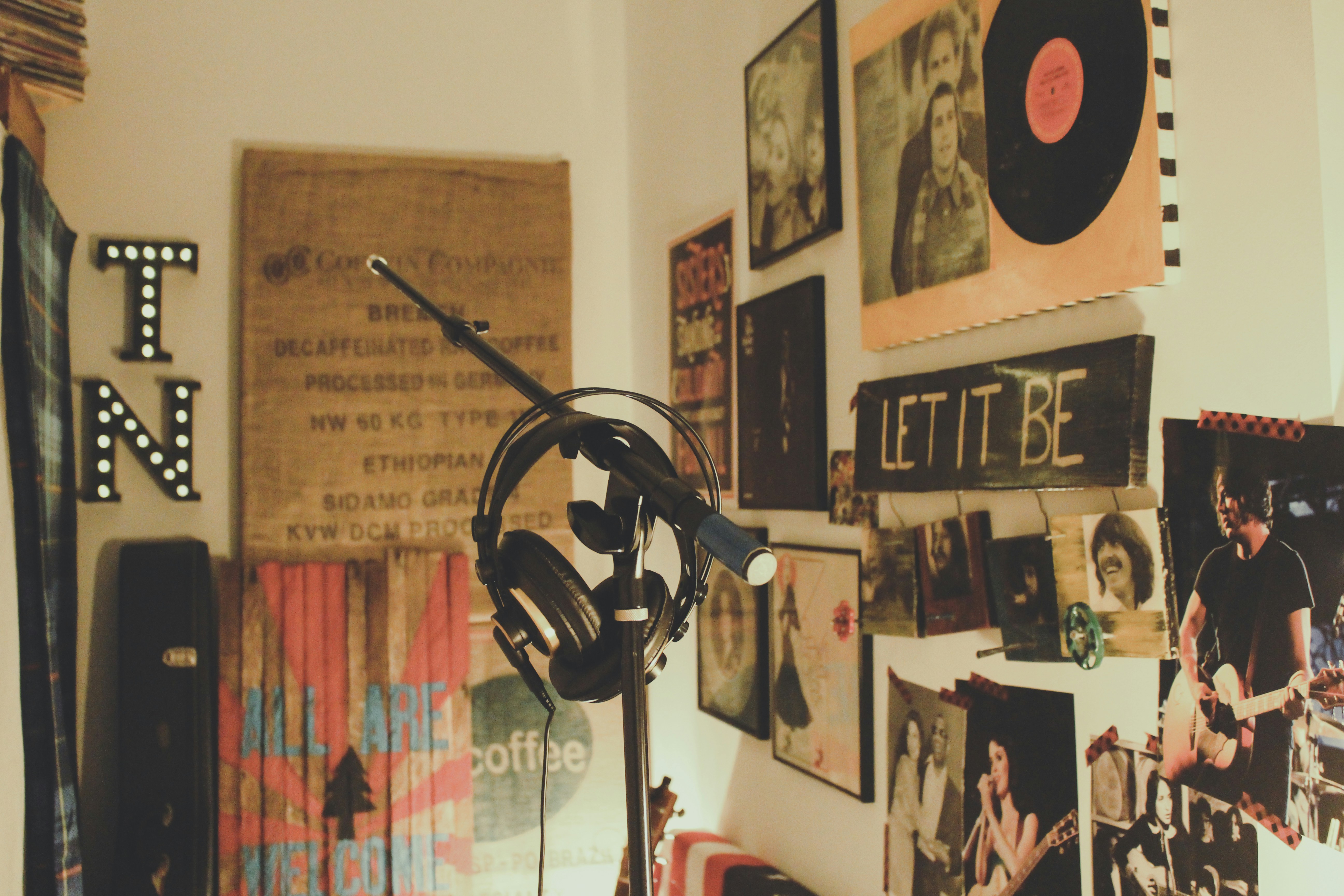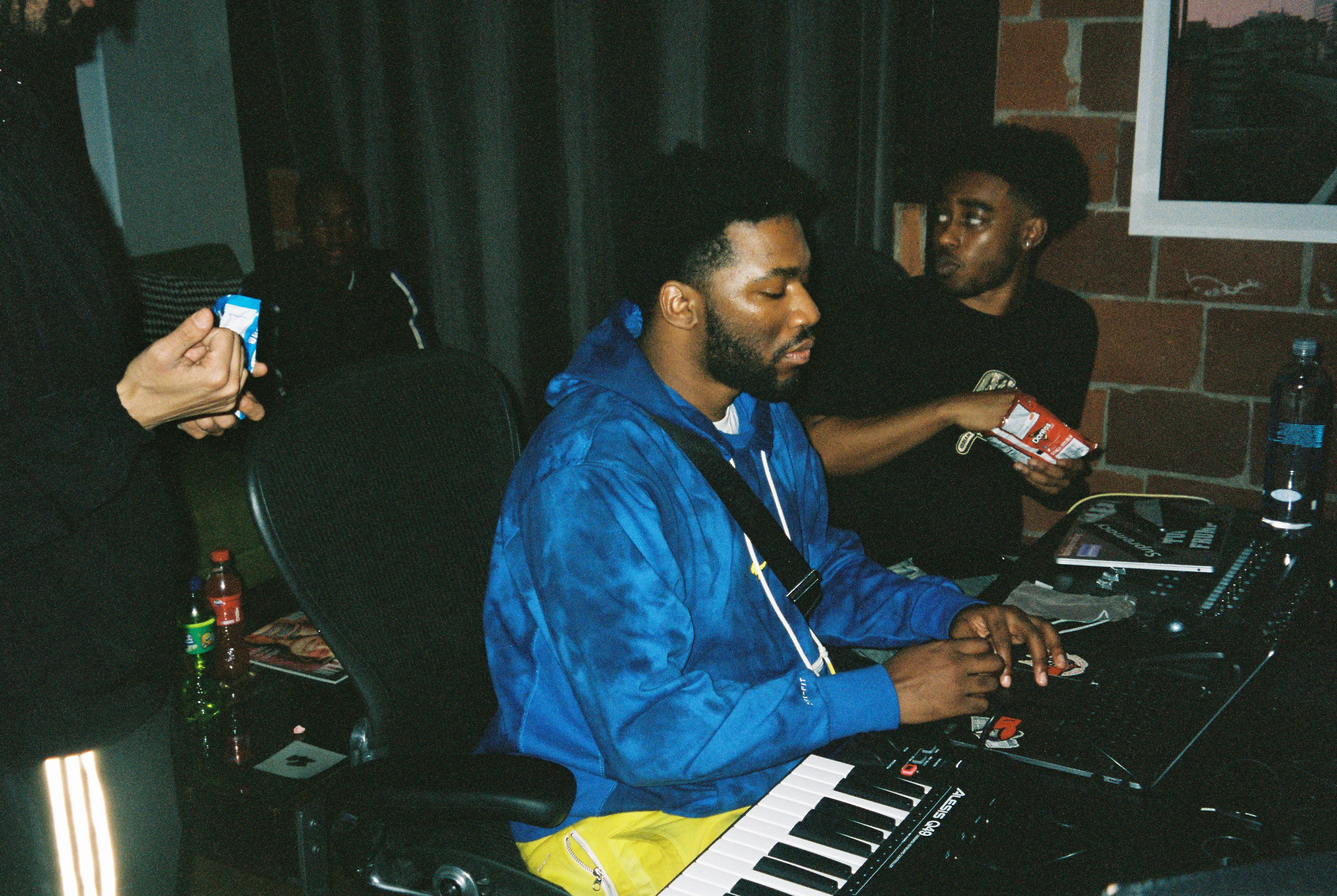Le début d’une nouvelle année signifie généralement adopter de nouvelles habitudes, se fixer des objectifs et se dire « 2025 est mon année! » Mais à quoi cela ressemble-t-il concrètement pour vous en tant qu’artiste indépendant?
Ah, janvier. Le mois où l’on fixe des objectifs, où l’on réfléchit à l’année écoulée et où l’on nourrit de grandes ambitions.
Peut-être que 2025 est l’année où vous sortirez enfin cet album sur lequel vous travaillez sans relâche, ou celle où vous atteindrez 100 000 écoutes, ou encore celle où vous parviendrez enfin, enfin à figurer sur l’une de ces fichues playlists Spotify.
Quelles que soient vos intentions pour cette année, nous voulons vous soutenir—c’est pourquoi nous avons rassemblé les meilleurs conseils pour construire vos objectifs d’artiste, comprendre où vous voulez aller avec votre musique et surtout comment concrétiser vos rêves.
Allons-y.
Étape #1. Ce qui vient de se passer.
Vous l’entendez sûrement souvent, mais réfléchir à son parcours est essentiel. Regarder en arrière vous permet d’identifier ce qui a bien fonctionné, ce qui a été difficile et les réussites que vous avez accomplies.
Peut-être avez-vous créé un profil Spotify, réalisé un reel Instagram pour promouvoir votre dernière sortie, ou simplement chanté sous la douche pour perfectionner votre voix.
Prendre du recul nous permet de faire le bilan notre parcours artistique. Avons-nous sorti les morceaux que nous voulions sortir? Avons-nous vraiment donné la priorité à notre carrière musicale?

Il est important de noter les habitudes, routines, activités et réalisations de l’année passée avant de se lancer avec enthousiasme dans la planification de la suivante. Observez ce qui vous ralentit et ce qui vous fait avancer dans votre parcours d’artiste.
Comment pouvez-vous intégrer ce qui a bien fonctionné cette année?
Qu’est-ce que vous pourriez laisser derrière vous parce que cela vous retient?
Étape #2. Déterminer quels devraient être vos objectifs.
Peut-être avez-vous du mal à définir vos objectifs d’artiste. Partout où l’on regarde, il y a des objectifs à fixer et de nouvelles habitudes à adopter, mais combien d’entre eux concernent réellement les artistes? Plus précisément, des artistes comme vous—qui jonglent peut-être entre une carrière émergente et un emploi à temps plein ou partiel.
L’essentiel ici est de développer des objectifs qui correspondent à votre trajectoire artistique tout en s’adaptant à votre contexte personnel.
Quelques questions à vous poser:
Quel est mon objectif ultime en tant qu’artiste, et comment les objectifs de cette année peuvent-ils m’en rapprocher?
Combien de temps et d’énergie puis-je réellement consacrer à ma musique chaque semaine?
Quelles sont mes obligations actuelles (ex. travail, famille, vie personnelle) qui pourraient impacter ma capacité à poursuivre certains objectifs? Comment puis-je m’adapter à ces contraintes (ou les intégrer)?
Quels objectifs auront le plus grand impact sur ma carrière artistique, même s’ils demandent plus d’efforts à atteindre?
Si aucun objectif concret ne vous vient immédiatement en tête, pas d’inquiétude. Vous pouvez peut-être vous concentrer sur le développement de vos compétences pratiques—comme gagner en assurance lors des échanges professionnels, apprendre un nouvel instrument ou améliorer votre écriture musicale.
Peut-être s’agit-il d’apprendre à vous promouvoir en tant qu’artiste, de mieux comprendre les droits d’auteur et les royalties, ou encore d’explorer de nouvelles façons de vous connecter avec vos fans en ligne et hors ligne.
Pensez aux compétences, projets créatifs ou opportunités de croissance que vous avez mis de côté. Y a-t-il un moyen de leur donner la priorité cette année?
Étape #3. Il est temps d’être précis.
Une fois que vous avez défini vos objectifs, il est temps de les préciser.
La précision est essentielle, car notre cerveau, constamment sollicité, peut facilement perdre le fil si nous nous contentons d’une intention vague et générale.
L’objectif « Je veux créer plus de musique cette année » peut aussi bien signifier sortir trois albums incroyables que simplement envoyer une chanson à votre belle-sœur. Grande différence.
Vous avez probablement déjà entendu parler des objectifs SMART, un acronyme pour des objectifs spécifiques, mesurables, atteignables, réalistes et temporellement définis. Si ce cadre vous convient, utilisez-le comme une base pour reformuler vos objectifs en résultats concrets et réalisables.
Exemple: « Je joue mon EP fraîchement sorti dans trois nouvelles salles de ma ville avant le 1er août, en travaillant avec un manager et en activant mon réseau. »
Personnellement, je trouve que SMART est un peu surexploité. À la place, je préfère conserver les éléments de spécificité, de mesurabilité et de temporalité, mais y ajouter un élément d’émotion.
Exemple: « Je joue avec énergie mon EPIC, magistralement masterisé EP dans trois nouvelles salles excitantes de ma ville passionnée de musique avant le 1er août, en travaillant avec un manager génial et en contactant mon réseau avec assurance. »

Ajouter de l’émotion à vos objectifs les rend plus inspirants et motivants, et vous donne envie de dire « Put**n, oui! ». Même en intégrant simplement quelques adjectifs évocateurs, l’idée est de rendre vos objectifs agréables à lire et à dire à voix haute.
Quelle que soit la méthode que vous choisissez pour préciser vos objectifs, assurez-vous qu’ils vous inspirent ET qu’ils sont formulés avec suffisamment de clarté pour que nous puissions les développer à l’étape suivante.
Étape #4. S’engager, puis passer à l’action.
Saviez-vous qu’environ 23% des personnes abandonnent leurs résolutions dès la première semaine, et que 43% les abandonnent avant la fin janvier? Et en regardant le calendrier aujourd’hui, ça ne s’annonce pas très bien pour ces 43% qui avaient fixé leurs objectifs au début du mois.
Alors, qu’est-ce qui différencie ces 43% des 67% restants? Qu’est-ce qui distingue ceux qui s’inscrivent à la salle de sport de ceux qui y vont réellement?
De nombreux facteurs influencent votre capacité à tenir vos objectifs, mais l’une des stratégies les plus faciles à appliquer est de les diviser en étapes.
Ces étapes nous permettent de réaliser que les objectifs ne se concrétisent pas en une journée. Ce sont le résultat d’actions répétées, effectuées avec une intention réfléchie.
Créer et sortir un album ne se résume pas à s’asseoir un jour et dire : « Bon, c’est parti pour un album! » Cela demande une approche réfléchie (parfois plus structurée que d’autres) avec un cadre progressif pour mener à bien tout le processus.

Voici quelques questions pour guider votre réflexion:
Quelle est l’action la plus impactante que je peux entreprendre pour atteindre [objectif]?
Qu’est-ce qui me freine dans l’accomplissement de mon [objectif]? Est-ce un manque de temps, des priorités floues, des outils ou ressources manquantes, ou autre chose?
Comment savoir si je travaille efficacement vers mon [objectif]? (Quels checkpoints peuvent m’indiquer que j’avance?)
À quoi ressemble mon processus idéal pour atteindre cet [objectif]? Des routines structurées, des élans créatifs spontanés, des bilans réguliers, ou autre chose?
Une fois que vous avez identifié les étapes essentielles, les plus longues ou les plus difficiles, ainsi que celles qui nécessitent des prérequis, il est temps de tout compiler. Si vous aimez les listes de tâches, faites-en une, en organisant les étapes par priorité et par ordre chronologique.
Exemple: « Je publie avec passion des reels engageants de ma musique sur Instagram pour atteindre 5 000 abonnés (qui ADORENT ma musique) avant la sortie de mon EP en juillet. »
Créer un compte Instagram pour ma musique
Regarder une vidéo YouTube sur comment attirer et engager des abonnés
Établir un calendrier de publications et une stratégie de sortie
M’inscrire sur Canva et CapCut pour l’édition et le design des posts
Demander à un ami d’être mon partenaire de responsabilité pour m’assurer de publier 3 fois par semaine
Et ainsi de suite. Si les listes vous stressent ou vous paraissent trop intimidantes à cause du nombre d’étapes, divisez vos objectifs en segments plus petits.
Si vous avez un objectif à long terme (par exemple annuel), essayez la méthode des 12 semaines: au lieu de penser à l’année entière, découpez votre objectif en morceaux trimestriels. Ainsi, vous vous concentrez uniquement sur les trois prochains mois, et non sur l’ensemble de l’année.
Transformer vos objectifs en étapes pratiques les rend bien plus accessibles et votre trajectoire beaucoup plus claire.
Étape #5 : Trouver ce qui résonne en vous.
Au bout du compte, chacun a ses propres motivations, internes et externes, qui influencent les actions qu’il entreprend dans sa vie. Ce qui vous motive n’est pas forcément ce qui me motive, ce qui rend difficile de proposer une méthode universelle de motivation.
Si vous savez que vous fonctionnez bien avec les encouragements verbaux (entendre et prononcer des phrases motivantes), alors trouvez ces mots et intégrez-les dans votre processus pour atteindre vos objectifs. Peut-être que cela signifie enregistrer vos réponses positives préférées sur votre dernière sortie et les lire avant de commencer à écrire une nouvelle chanson.
Si vous aimez lire des citations inspirantes sur Pinterest ou écouter un podcast motivant, TROUVEZ ces sources et entourez-vous autant que possible de ces éléments de motivation.
Si vous êtes inspiré par les images, peut-être que vous pouvez coller une photo de votre artiste musical préféré sur votre miroir de salle de bain. Ou définir votre fond d’écran de téléphone avec l’image de la salle de concert où vous rêvez de jouer cette année.
Si vous comprenez ce qui vous motive, vous saurez comment rester fidèle à vos objectifs, même quand les choses deviennent compliquées, difficiles ou épuisantes.
Posez-vous ces questions:
Pourquoi est-ce que je veux atteindre cet [objectif]? Pour toucher un public plus large, me sentir épanoui artistiquement, assurer ma stabilité financière, ou autre chose?
Qui dans ma vie (à part moi-même) sera positivement impacté par l’accomplissement de cet objectif? Qu’est-ce qui me motive le plus dans ce que je fais?
Comment puis-je appliquer cette motivation à cet [objectif]?
Comment puis-je rendre le processus de cet [objectif] plus agréable ou plus significatif pour moi?
Qu’est-ce qui m’aide le plus quand je manque de motivation? Est-ce le temps, le fait de revoir mes priorités, retrouver le sens derrière ce que je fais, ou autre chose?
Créez un tableau d’inspiration visuel pour vos objectifs.
Le public que vous voulez voir à votre concert, le montant de votre compte bancaire provenant des royalties de streaming ou des droits d’auteur, les commentaires bienveillants de votre audience, le nombre d’écoutes sur votre profil Spotify, la guitare que vous voulez jouer sur scène, la pochette de votre album, etc.

Écrivez vos objectifs et rendez-les visibles.
Malheureusement, de nombreux objectifs finissent dans un carnet sous un bureau, oubliés à jamais. Assurez-vous de voir constamment vos objectifs en les plaçant dans des endroits visibles, peut-être sur votre écran de verrouillage de téléphone, sur un post-it collé à votre ordinateur, près de votre porte-chaussures lorsque vous mettez vos chaussures pour sortir, sur votre frigo… peu importe, tant que vous tombez dessus régulièrement.
Trouvez un partenaire de responsabilisation.
Si vous êtes plus efficace lorsque quelqu’un vous rend des comptes, avoir une personne au courant de vos objectifs et de ce que vous devez faire peut être utile.
Si vous travaillez avec un manager, peut-être que cette personne peut jouer ce rôle pour vous, en veillant à ce que vous fassiez le nécessaire pour générer de l’enthousiasme autour de la sortie de votre EP ou pour écrire ces chansons pour votre nouvel album. Si l’argent vous motive, peut-être pouvez-vous l’intégrer dans votre plan.
Faites en sorte que votre objectif soit plus grand que vous.
Qui bénéficiera de votre réussite? Allez-vous subvenir aux besoins de votre famille, soutenir votre partenaire, aider votre communauté?
Allez-vous inspirer les autres et créer du lien à travers votre musique?
Utiliserez-vous votre nouvelle audience pour partager des messages qui vous tiennent à cœur?

Partage sur :

Simplifiez votre parcours musical avec des outils efficaces pour diffuser votre musique, générer des revenus et engager vos fans.
Rejoins Winamp for Creators








